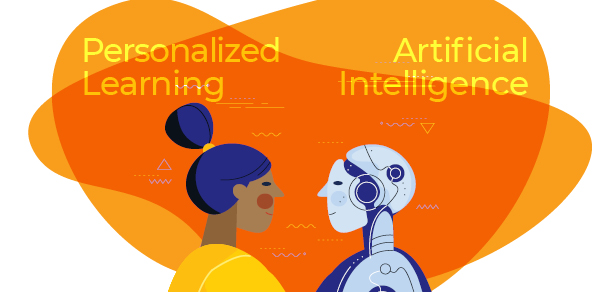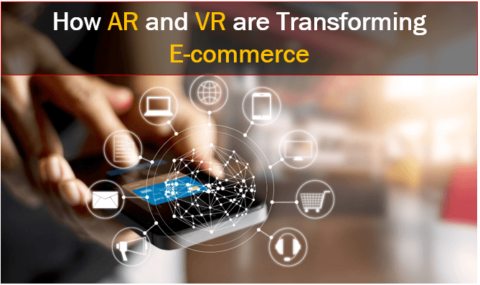Artificial Intelligence (AI) is reshaping the way we shop, creating a personalized, engaging, and more efficient shopping experience for consumers. In 2025, AI is expected to continue evolving and play an even larger role in customizing how people interact with e-commerce platforms. From tailored recommendations to predictive analytics, AI is transforming the retail landscape by delivering personalized experiences that cater to each consumer’s unique needs and preferences. Here’s a look at how AI is personalizing the shopping journey.
1. Personalized Product Recommendations
One of the most significant ways AI is revolutionizing the shopping experience is through personalized product recommendations. By analyzing data from past purchases, browsing history, and search behaviors, AI can suggest products that are more likely to resonate with a customer. E-commerce platforms such as Amazon and Netflix have mastered this technology, making it easy for customers to discover products or content that align with their interests. As AI becomes more sophisticated, these recommendations will become increasingly accurate, creating a seamless shopping experience.
2. AI-Powered Chatbots and Virtual Assistants
AI-driven chatbots and virtual assistants are enhancing customer service and personalizing interactions in real-time. These virtual agents can assist customers with product queries, order tracking, and even provide tailored suggestions based on the consumer’s browsing habits. Tools like chatbots make it possible for shoppers to receive instant support, guiding them through their buying journey. Additionally, these AI-powered assistants can be integrated into mobile apps, websites, or social media platforms, offering an omnichannel experience that meets customers where they are.
3. Visual Search and Augmented Reality
AI is also playing a key role in visual search and augmented reality (AR), transforming how consumers find and interact with products. With visual search, customers can upload images of items they’re interested in and AI algorithms will find similar products within the retailer’s catalog. This reduces the search time and makes the shopping experience more intuitive. Additionally, AR technology, powered by AI, allows consumers to “try on” products virtually, such as makeup, clothing, or furniture, directly from their mobile devices or through online retailers. This level of personalization helps consumers make informed decisions before making a purchase.
4. Predictive Analytics and Dynamic Pricing
AI’s ability to analyze vast amounts of data enables predictive analytics, which allows retailers to forecast consumer behavior and personalize offers accordingly. By tracking purchasing patterns, AI can predict what items a consumer might need next, when they are likely to purchase, and what promotions or discounts will appeal to them. This leads to more targeted marketing campaigns and better customer retention. In addition, dynamic pricing powered by AI allows businesses to adjust prices in real-time based on demand, consumer behavior, and competitor pricing, offering personalized deals to the right customers at the right time.
5. Tailored Shopping Experiences
AI is increasingly helping retailers provide a more tailored shopping experience, both online and in-store. Online stores use AI to modify the website interface based on the individual shopper’s behavior, showing different products or categories depending on what the consumer is interested in. For instance, if a customer regularly browses athletic gear, the website may highlight new arrivals or discounts in that category. In physical stores, AI-driven technologies such as smart mirrors or digital kiosks offer personalized recommendations based on customers’ preferences and past interactions.
6. Enhanced Customer Engagement Through Personalization
By leveraging AI, brands can engage with customers on a more personal level. AI can analyze social media posts, reviews, and customer feedback to gain insights into what consumers truly care about. Retailers can use this data to tailor their marketing messages and content, ensuring that they resonate with the right audience. Personalized email campaigns, special offers based on browsing history, and loyalty programs that reward individual shopping habits are just some of the ways AI is enhancing customer engagement and making them feel valued.
7. Seamless Omnichannel Experience
Consumers today expect a seamless experience across all channels, whether they are shopping online, in-store, or via mobile. AI is helping retailers deliver just that by integrating data across various touchpoints and offering personalized experiences on every platform. If a customer views a product on a mobile app and adds it to their cart, AI can sync that information with the website, making the purchase experience smoother when they switch devices. This omnichannel personalization ensures that consumers receive consistent, tailored experiences regardless of how or where they shop.
8. AI-Driven Customer Retention
AI is not only focused on attracting new customers but also on retaining existing ones. By analyzing past purchase behavior and understanding consumer preferences, AI can help businesses predict when customers are likely to churn and deliver personalized incentives to keep them engaged. Loyalty programs can be fine-tuned using AI to provide rewards that customers value most, creating a stronger sense of brand loyalty and encouraging repeat business.
9. Personalizing Content and Ads
AI is revolutionizing digital marketing by personalizing advertisements and content. Through machine learning algorithms, retailers can create hyper-targeted ads that are specifically tailored to an individual’s tastes, behavior, and preferences. AI analyzes user data to serve personalized ads across different platforms such as social media, search engines, and websites. This kind of personalization increases the likelihood of conversion, as consumers are more likely to engage with ads that are relevant to their interests.
10. The Future of Personalization with AI
The future of personalized shopping experiences lies in the ongoing advancements of AI. As technology continues to evolve, retailers will be able to harness even more sophisticated algorithms to better understand their customers and predict their needs with greater accuracy. From hyper-personalized shopping experiences to predictive customer service, AI is set to transform the way we shop in the years to come, providing consumers with the most relevant and seamless experiences possible.






